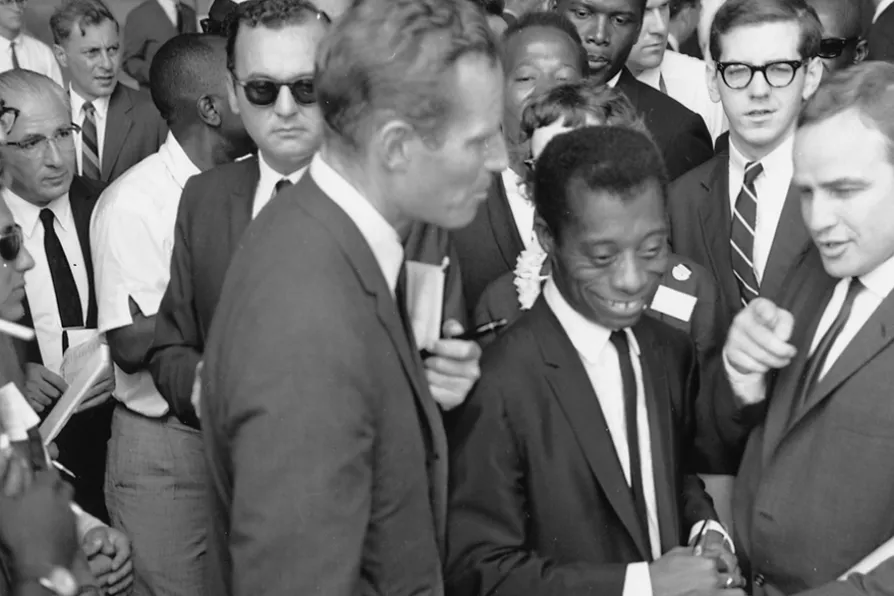Releases from Rahsaan Roland Kirk, Maggie Nicols/Robert Mitchell/Alya Al Sultani, and Gordon Beck Trio and Quintet

 Civil Rights March on Washington, DC (L to R) Charlton Heston, James Baldwin and Marlon Brando, with Sidney Poitier standing behind. August 28 1963
[US Information Agency Press and Publications Service/CC]
Civil Rights March on Washington, DC (L to R) Charlton Heston, James Baldwin and Marlon Brando, with Sidney Poitier standing behind. August 28 1963
[US Information Agency Press and Publications Service/CC]
JAMES BALDWIN, the important left-wing polemicist, black author and activist, was born one hundred years ago in Harlem, New York, August 2 1924. His writing career encompassed bestselling novels, essays, plays and articles.
Baldwin’s stepfather David, a Pentecostal preacher, was a factory worker, earning too little to provide for his family of nine children. His mother Berdis, a migrant from the South, worked in domestic service. The young James’s first encounter with police at the age of 10 brought home to him the realities of racism. David’s preaching initially led the teenage Baldwin to become a young minister.
During his time at Public School 124 in Harlem (with its first black principal, Gertrude Ayers), Baldwin’s potential was recognised by Orilla Miller, a white teacher and communist from the Midwest. Miller introduced him to literature and theatre, including A Tale of Two Cities by Charles Dickens and the landmark play Voodoo Macbeth, directed by Orson Welles with an all-black cast.

After Zohran Mamdani’s electoral win, BHABANI SHANKAR NAYAK points to the forgotten role of US communists in New York’s radical politics

CHRIS SEARLE pays tribute to the late South African percussionist, Louis Moholo-Moholo

This is a remarkable set of hop hip, salsa, reggae, soul, cumbia and traditional Mexican music finds TONY BURKE

On the centenary of the birth of the anti-colonial thinker and activist Frantz Fanon, JENNY FARRELL assesses his enduring influence










